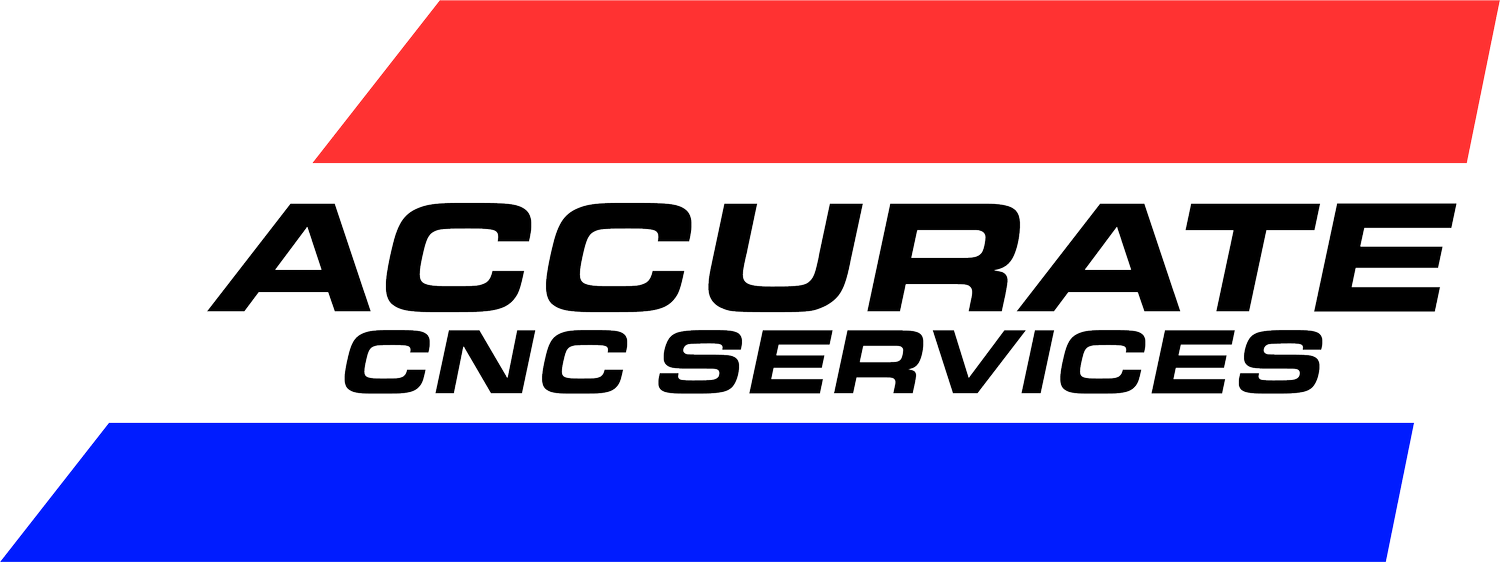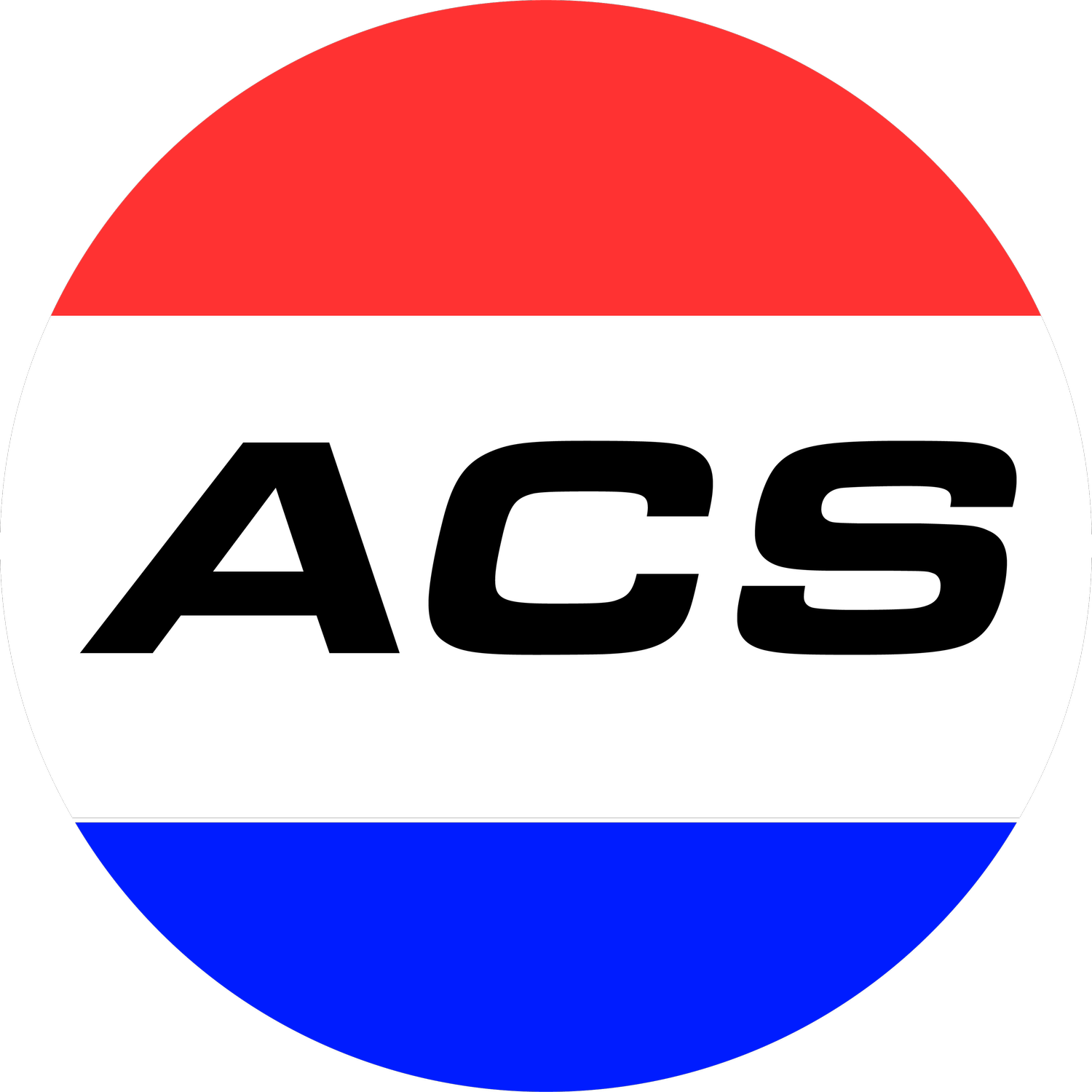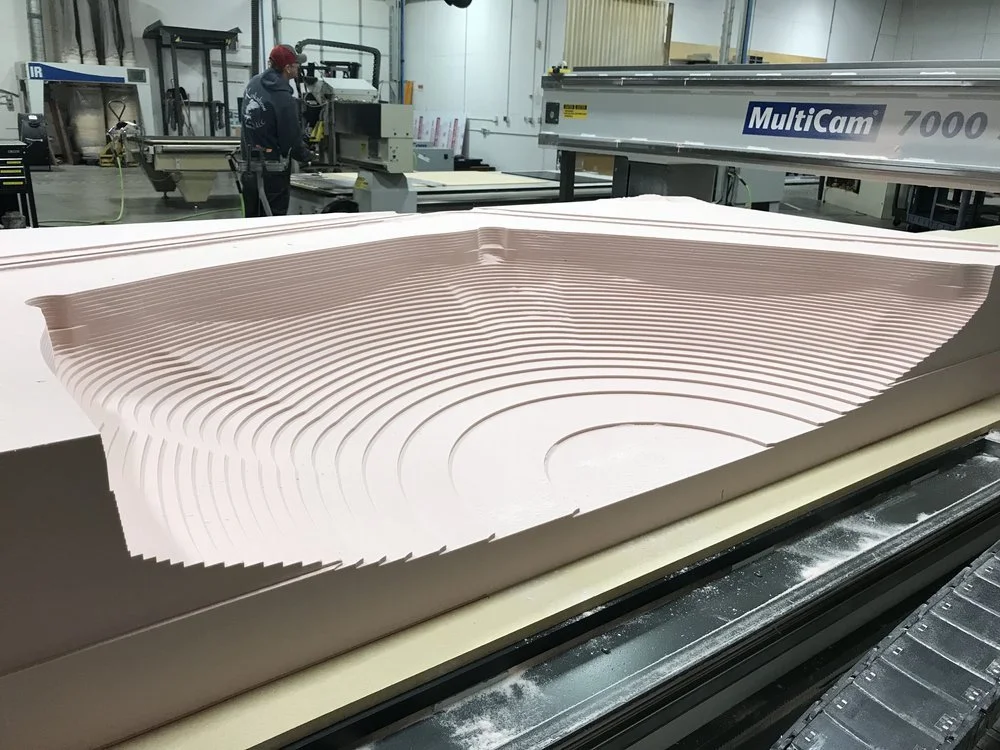4 Surprising Uses for CNC Router Services
Most people hear “router” and think “woodworking”—and they’re not wrong. Your own home may boast a beautiful set of router-made kitchen cabinets.
But routers are so much more than woodworking tools! In fact, here at Accurate CNC Services, we use our MultiCam routers daily to make complex parts that typically get machined on a mill. We use our mills, too, of course—only less frequently than other shops would.
That’s how well we know our routers.
To relieve you of worries that we’re out here in Northern Idaho cutting out wooden stars and hearts all day, we’d like you to get to know our CNC router services, too—specifically, the routers’ flawless cutting capabilities for some of our shop’s tallest tasks.
Yep, You Can Do That with a Router
When our parents opened up shop almost 20 years ago, their first machine was a router. We joke that they have a soft spot for the machine, but the truth is that our dad, Don Stinson, had a genuinely unique vision of what a precision machine shop could accomplish with an industrial router.
To be fair, routers like ours are dramatically different beasts from the small routers you find in home shops. Our MultiCam CNC routers are massive pieces of machinery with work areas up to 10’ x 50’, cutting speeds up to 2,200 IPM, and repeatability up to 0.0001”.
Many of our customers come to us after struggling to find a US shop with a mill large enough to accommodate their more sizable projects. We can take on that work. Our routers are beyond big enough to make larger parts, and we’ve mastered the tricks and techniques involved in getting a router to function, essentially, like a mill.
(Of course, if your parts absolutely call for milling, we can perform that capability, too—often in combination with CNC router services.)
4 Surprising Processes We Perform with a Router
Though capable of complex work, the router’s simplicity is what makes it such a powerful tool. A vacuum table holds the material secure—no fixturing needed. We simply turn on the vacuum pump and cut according to your part’s design.
Here are four unexpected processes we regularly perform with a CNC router:
1. Machining metal
While we work with wood on occasion, it’s the material you’re least likely to find on our router table. Instead, we commonly use our routers to machine plastics, composites, and—yes—even non-ferrous metals like aluminum, copper, lead, nickel, tin, titanium, countless alloys, and more.
Far from only functioning for flimsy sheets of material, routers like ours are powerful enough to cut thick sheets. For example, we regularly perform CNC router services on aluminum as thick as 1”!
2. Making molds from sliced models
If you’ve ever ridden a roller coaster at Idaho’s Silverwood Theme Park, there’s a chance you sat in a seat made using one of our fiberglass molds. To make that mold, we sliced a customer’s model of the seat into slimmer sections.
Model slicing is a common mold-making technique used primarily for making large molded parts like outdoor hunting blinds—or rollercoaster seats. Moldmakers slice models to make them fit the machine’s work area or to machine otherwise inaccessible areas of the mold.
Moldmaking shops can make gigantic molds from unsliced models, but you’ll pay a gigantic price for the convenience. Likewise, a massive milling machine could handle a massive mold, but you’d be hard-pressed to find a mill that big in this country, let alone in the Pacific Northwest.
The best solution is to slice the model and machine the still-massive slices with a router. While a one-piece mold undoubtedly provides the most precise results, routing is the simplest and most cost-effective option for parts that don’t require such a high level of precision to function properly.
3. Making blanks for customer machining
Some customers order machined blanks from Accurate CNC Services and then machine the critical tolerances and features in-house. It’s common for these customers to request blanks made with waterjet cutting, but waterjet cutters leave rough edges and cause edge drift. In contrast, routers produce clean edges that are nearly identical in quality to milled edges.
4. Marking parts—small and large
Our MultiCam routers are equipped to operate an indelible marker! We’ve tasked our CNC router with labeling workpiece fixtures, applying part numbers to blanks that the customer will machine in-house, and marking individual parts with ID numbers.
Masking marks. To prepare a climbing gym’s wood wall panels for painting, our team programmed the router to outline each panel’s design, enabling our customer’s paint department to quickly and easily mask the panels for painting—no stencils needed.
Setup guides. We help our customers save valuable machine time by using the router to draw setup guides on mill blanks. For example, you can order your mill blanks from Accurate CNC Services with toe clamp locations and more pre-marked.
Could we accomplish the same part markings with an engraver? Yes, but unlike part marking, engraving is a subtractive process that removes material from a blank or part, leaving behind tiny witness marks that must then be backfilled.
Choose CNC Router Services from Your Favorite Idaho Shop
If you need parts with tight tolerances and a mill-like finish, ask Accurate CNC Services how we can deliver with our CNC routing services.


